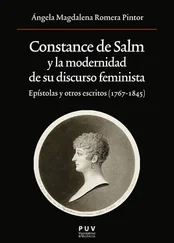Magdalena Tulli - Flaw
Здесь есть возможность читать онлайн «Magdalena Tulli - Flaw» весь текст электронной книги совершенно бесплатно (целиком полную версию без сокращений). В некоторых случаях можно слушать аудио, скачать через торрент в формате fb2 и присутствует краткое содержание. Год выпуска: 2007, Издательство: Archipelago Books, Жанр: Современная проза, на английском языке. Описание произведения, (предисловие) а так же отзывы посетителей доступны на портале библиотеки ЛибКат.
- Название:Flaw
- Автор:
- Издательство:Archipelago Books
- Жанр:
- Год:2007
- ISBN:нет данных
- Рейтинг книги:5 / 5. Голосов: 1
-
Избранное:Добавить в избранное
- Отзывы:
-
Ваша оценка:
- 100
- 1
- 2
- 3
- 4
- 5
Flaw: краткое содержание, описание и аннотация
Предлагаем к чтению аннотацию, описание, краткое содержание или предисловие (зависит от того, что написал сам автор книги «Flaw»). Если вы не нашли необходимую информацию о книге — напишите в комментариях, мы постараемся отыскать её.
Flaw — читать онлайн бесплатно полную книгу (весь текст) целиком
Ниже представлен текст книги, разбитый по страницам. Система сохранения места последней прочитанной страницы, позволяет с удобством читать онлайн бесплатно книгу «Flaw», без необходимости каждый раз заново искать на чём Вы остановились. Поставьте закладку, и сможете в любой момент перейти на страницу, на которой закончили чтение.
Интервал:
Закладка:
Evidence of the fleeting presence of the refugees has remained only in the pictures taken by the photographer. Here a little girl looks directly at the lens; only her eyes can be seen from behind the pillow she holds in her arms. Here people with empty jars form a line for water, snaking round the shut-off faucet; here the orphans in patched clothing reach for a basket of rolls, licking their lips in anticipation. In the background is the crowd, always the same, dragging their suitcases along and stooping under the weight, sitting on them, not allowing themselves easily to be separated from their belongings. If these people were asked their opinion now, they would surely agree that it would have been best not to take any luggage with them at all. But who could have known ahead of time, they would add with a shrug. They would not have liked the photographs taken on the square, where they had found themselves against their will and where their feelings had been trampled underfoot. For sure they would have wanted the photographer to destroy the pictures along with the negatives. If they had found out that, on the contrary, he intended to sell them for a handsome sum to certain astute press agencies, they would have been indignant. Seeking to prove that those pictures contained images taken out of context, false and of no value, they could have shown numerous private photos from their wallets, on which, it had to be admitted, they came out incomparably better. And the earlier pictures, in which they appeared in the fullness of their good looks, good health, and prosperity, would be a proper memento of them. Their eyes gazed into the future without a trace of terror; their clothing was brand-new and not yet disheveled by fate. This is what ought to have remained as their visiting card in the present story when they themselves had already left it. But from the very beginning the refugees’ opinions were not consulted in any matter, and now that they are gone, they count for even less.
Alas, if someone had hoped that after their disappearance the frost would ease up or the guards would turn back into schoolboys, subsequent developments were to disappoint them. It was the armbands on the school coats that created the guards, and they are easier to put on than to take off. Now the threads of local stories, which in the view of the residents ought to have been the most important, had suddenly been snapped off at a random moment as if in themselves they were of no significance. The notary had managed to drag himself out of bed in the morning, but he had not even made it to his office. The policeman had begun his rounds but hadn’t finished them. The maid had prepared lunch, but the family had not gathered round the table. After disposing of the remnants of the foreign story that had encroached on the local tale, the latter ought to have continued smoothly on. It would have been nice to believe that nothing had happened. Or that what had taken place was a transitory and inconsequential interruption in the course of more important concerns, such as family life, work, and secret passions. But the desired return to the point of departure ceased being possible when the story of the notary lost its original cohesiveness. After the obstacle that blocked its advance was removed, the story itself no longer had any meaning. This slackening off makes itself felt ever more acutely. The notary falls asleep in an armchair, and his desires yield to the forces of inertia, like the aforementioned soldiers wearied by a hopeless fight who finally leave their fortress under a white flag of surrender. The policeman, who from morning till evening has done everything he could, dozes off on a kitchen stool while the water cools in the basin in which he is soaking his corns. The singing stopped some time ago, but it still rings in the ears. The residents won’t even notice when they drift into the sleep they emerged from in the morning. Bodies in one place, clothing in another — arranged tidily on hangers, and no longer needed here. An unbroken quiet will take over, like inside a glass ball in which, after a vigorous shaking, everything returns to its place.
In the meantime, however, the general is unable to regain his composure. What he ordered to be locked up should have remained so, period. The general is not fond of surprises, especially those that require additional explanations, because as a seasoned soldier he is well aware that additional explanations never make sense and serve only to pull the wool over people’s eyes. All he can do is blame the sentries. The absence of the crowd is nothing but a special form of presence, and what has changed is in essence of secondary importance. Since the refugees are no longer here, they must be somewhere else, that much is obvious. But if such is the case, where are all those people now? Where is the woman in the white fur coat, where is the pair of newlyweds, their wedding outfits sprinkled with confetti? That the general does not know. Nor does he know where the schoolgirl in pigtails is, along with her elderly grandmother, who wanted all along just to sit down comfortably somewhere, nothing more; or the blind man with the violin in a case. And above all the family that in the confusion had lost its newborn baby. If the general wanted an answer from me to the question that was tormenting him, he might receive one, but he would not believe it. I close my mouth and will not say a word to the general. For sure? What if I am pressured? What if a peremptory command is issued, backed up with the irrefutable argument of a cold gun barrel on the back of my neck? I admit this would come as a shock. But even then, no. For the privilege of not opening one’s mouth it is worth paying any price. To the very end there is hope, however slim, that resistance will triumph. That by some miracle the mechanism, imperfect by its very nature, will once again jam before the fatal click of the firing pin. As the story comes to an end only one thing is worth counting on: the failure of the rules, and a beneficent confusion that will blunt the inexorability with which effect follows on the heels of cause.
Baffled by the mystery without a solution, the general above all wants to know the truth. But the truth, long ridiculed and rejected, would now sound like a bad joke. Did it not circulate in its time in the form of a rumor about taxicabs that were supposed to come for the refugees and take them to a better place? At that time too it failed to convince the general. This is a sign that it is not meant for him. Yet it does exist. It declares that the refugees are now living in America. Even if it were not obvious why it should be America in particular, still the inquisitive residents would have no choice but to accept this fact. How the crowd got there is a more complicated affair, though at the same time, on the contrary, the simplest thing of all. The answer may be difficult or easy, depending on who I am.
So then, if I am the baby born at the wrong time — and could I be anyone else? — the answer is easy, and I know all there is to know about this matter. I’m thoroughly familiar with every detail and every expense associated with it. Everything here belongs to me: the glints of light on the windowpanes, the yellow of the plasterwork, the white of the clouds, the smell of soapy water, the heaviness of the basalt cobblestones. But there are only as many of these possessions as will fit in the heart and the mind. In order to communicate with the people carrying out the work, such things have to be converted into money — the rustling harmonies of banknotes. I use my slender means sparingly — they have to cover general costs like the decoration of interiors, and lighting, and the maintenance of the installations, not to mention the personal needs of notaries and their wives, children, maids, and concierges. And also of pharmacists, bakers, custodians, and clerks. And thugs smashing windows with sticks — even they must not be overlooked. And since the available resources are by the nature of things in short supply and there is not enough of anything to go around, the men in overalls are always disappointed by the scant possibilities for lining their own pockets on the side. Every story is ravaged by tensions; every one is destroyed by the flaw of contempt. Sooner or later someone who will end up paying for it all will come along. Whether I like it, or not, the homeless crowd, now dressed one way, now another, passes through every story that can be set in motion.
Читать дальшеИнтервал:
Закладка:
Похожие книги на «Flaw»
Представляем Вашему вниманию похожие книги на «Flaw» списком для выбора. Мы отобрали схожую по названию и смыслу литературу в надежде предоставить читателям больше вариантов отыскать новые, интересные, ещё непрочитанные произведения.
Обсуждение, отзывы о книге «Flaw» и просто собственные мнения читателей. Оставьте ваши комментарии, напишите, что Вы думаете о произведении, его смысле или главных героях. Укажите что конкретно понравилось, а что нет, и почему Вы так считаете.












